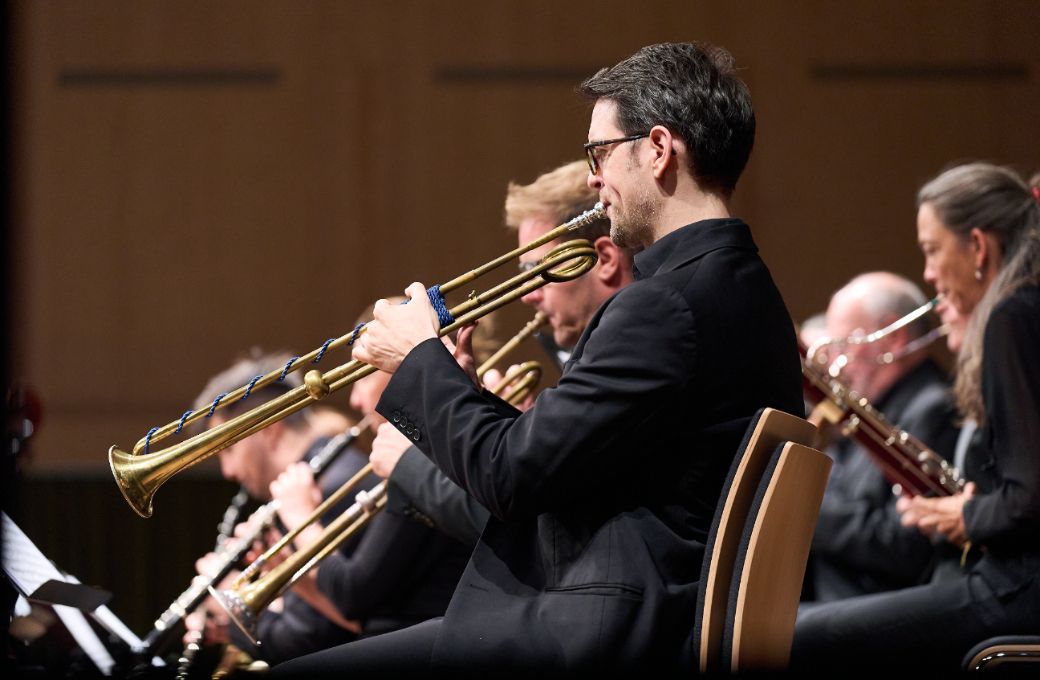This seventh edition of Klosters Music continued with a once popular but now less common format: a Beethoven concert with overture, concerto and symphony, given by the Munich Chamber Orchestra conducted by Enrico Onofri. Again a dramatic overture, this time The Creatures of Prometheus, opened the programme. Prometheus stole fire from the Gods to bring it to humans, and this was a fiery performance indeed. Beethoven’s trademark sledgehammer chords were the unignorable call to attention. The slow introduction was steady but pregnant with tension, before the main Allegro molto con brio arrived – good to hear it played so quietly in this hall where you can hear a pin drop. The softly frenetic violin passages were delicate, the second theme lyrically fervent and the returning chords powerful. These highly committed musicians do not do “a day at the office” Beethoven.

Piotr Anderszewski was the soloist in Beethoven’s Piano Concerto no.1 in C major. After the long opening tutti had set the scene, the solo entry matched it for poise and polish. Anderszewski often directs concertos himself from the keyboard, permitting a closer dialogue with the orchestra, nearer to chamber music. He brought similar virtues here, Onofri’s own direction allowing players and soloist to interact within the prevailing tempo. The Largo bloomed at the broad tempo Anderszewski set, again allowing for call-and-answer playing, especially with the woodwinds. The Finale offered an unusual interpretation of the composer’s manipulation of phrase lengths and metre, slight hesitations hinting that the pianist was making these up as he went along, reflecting Beethoven’s fame as an improviser.
The climax of yesterday’s opening concert was Haydn’s Nelson Mass, celebrating Admiral Nelson’s victory over Bonaparte’s fleet at the Battle of the Nile. This concert closed with Beethoven’s Eroica Symphony, initially dedicated to Napoleon, only for the Republican composer to erase the dedication when Napoleon crowned himself Emperor. “Gods and Heroes” was the title of this programme, perhaps because the gods have a way of keeping the grandest earthlings grounded. Time passes and the adulation once given to a Corsican upstart is now quite eclipsed by that given to the music of Ludwig van Beethoven, and no piece is worshipped more than the Eroica.
The celebrants here were Onofri and the Munich Chamber Orchestra, with fully realised accounts of all four movements. Their overall timing was 48 minutes, which suggests a performance swifter than most. Onofri certainly favoured propulsive tempi in faster music, but never succumbed to the strange notion, still often asserted, that tempi should be mainly the same within any classical symphonic movement. But Onofri deployed subtle rubato, slowing down for lyrical passages, followed by gradual accelerandi for the return of an allegro. This allowed lyrical music to breathe properly, almost as if singers were involved. The whole effect was musical and involving, but still athletic and exciting. The Marcia funebre was dignified and solemn, its splendid fugal passage cumulatively compelling.
How did Beethoven revolutionise the classical orchestra? He added just one horn, thus permitting three-part harmony in an orchestral timbre other than the strings. He held back this effect until the third movement’s Trio, a stirring fanfare for those three horns. This had irresistible impact here, for the Munich players use modern instruments except for their natural trumpets and horns. So with the horns’ entry we were thrust suddenly from a modern concert back to the early 19th century, or even to the hunting origins of the instrument, so evocative was the golden-toned braying of these cors de chasse. Not even the nobly hymnic coda to the finale could surpass that.
Roy's press trip was funded by Klosters Music Festival.


